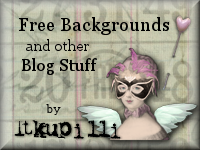
Puritans believed in the main doctrines of Calvinism:
1. Natural depravity: All men are born in original sin and can do nothing to save themselves.
2. Unconditional election: God, in his absolute sovereignty, saves some and damns others as he pleases.
3. Predestination: God knows from the beginning who has been elected.
4. Irresistible grace: Man cannot earn this saving grace, nor can he refuse it. The step-by-step process of realizing and accepting grace, and the sense of rebirth resulting from it, was called regeneration or sanctification.
They also believed:
1. God continuously directs the affairs of men. For example, a successful businessman suggests one who is favored by God.
2. The Bible was the guide for all every area of their lives. As such, the Puritan government (a theocracy) was modeled on the covenant between God and man in the Old Testament. This meant that persecution of nonbelievers was justified by scriptural example.
3. In this culture the purposes of literature were utilitarian. Religion was foremost, and all things were made to serve a religious purpose.
4. The genres favored by Puritan writers demonstrate their preference for the useful: Sermons, theological treatises, dialogues, debates, biographies, and histories were most popular, for they served a didactic purpose. Poetry also had a useful purpose, so some poets arose. Short stories, novels, and plays were not developed in this culture because these genres were not deemed useful or didactic.
5. Subject matter was dictated by the importance of religion in their lives and culture. The most important religious topic was a person’s spiritual journey.
6. Puritans wrote about those outside of their theocracy (Quakers, Anglicans, Seekers, Dutchmen, Indians, ect) to denounce them. Thus, while their work is biased, there is more of it than might be expected.
7. Writing style was also influenced by religion. Puritan writing is filled with Biblical allusions, imagery, and figures of speech. Plain writing was generally preferred (in contrast to the florid styles associated with “popish” writers.)
Work Cited
Callow, James T., and Robert J. Reilly. "Puritans and Non Puritans in New England." Guide to American Literature from Its Beginnings Through Walt Whitman (Barnes & Noble Outline Series; Cos 165). New York: HarperCollins, 1986. 5-22. Print.
1. Natural depravity: All men are born in original sin and can do nothing to save themselves.
2. Unconditional election: God, in his absolute sovereignty, saves some and damns others as he pleases.
3. Predestination: God knows from the beginning who has been elected.
4. Irresistible grace: Man cannot earn this saving grace, nor can he refuse it. The step-by-step process of realizing and accepting grace, and the sense of rebirth resulting from it, was called regeneration or sanctification.
They also believed:
1. God continuously directs the affairs of men. For example, a successful businessman suggests one who is favored by God.
2. The Bible was the guide for all every area of their lives. As such, the Puritan government (a theocracy) was modeled on the covenant between God and man in the Old Testament. This meant that persecution of nonbelievers was justified by scriptural example.
3. In this culture the purposes of literature were utilitarian. Religion was foremost, and all things were made to serve a religious purpose.
4. The genres favored by Puritan writers demonstrate their preference for the useful: Sermons, theological treatises, dialogues, debates, biographies, and histories were most popular, for they served a didactic purpose. Poetry also had a useful purpose, so some poets arose. Short stories, novels, and plays were not developed in this culture because these genres were not deemed useful or didactic.
5. Subject matter was dictated by the importance of religion in their lives and culture. The most important religious topic was a person’s spiritual journey.
6. Puritans wrote about those outside of their theocracy (Quakers, Anglicans, Seekers, Dutchmen, Indians, ect) to denounce them. Thus, while their work is biased, there is more of it than might be expected.
7. Writing style was also influenced by religion. Puritan writing is filled with Biblical allusions, imagery, and figures of speech. Plain writing was generally preferred (in contrast to the florid styles associated with “popish” writers.)
Work Cited
Callow, James T., and Robert J. Reilly. "Puritans and Non Puritans in New England." Guide to American Literature from Its Beginnings Through Walt Whitman (Barnes & Noble Outline Series; Cos 165). New York: HarperCollins, 1986. 5-22. Print.






No comments:
Post a Comment